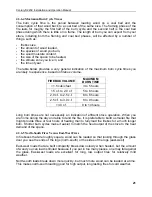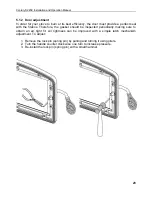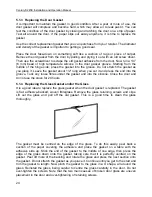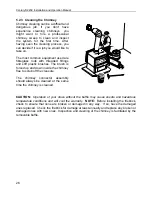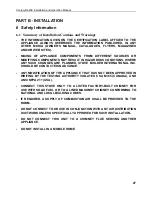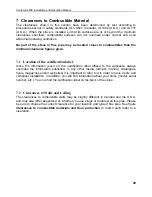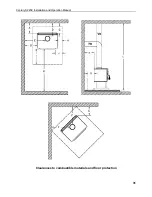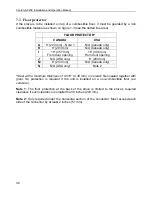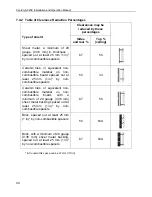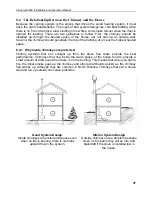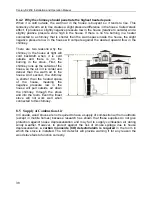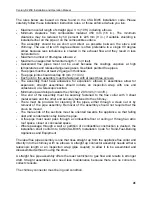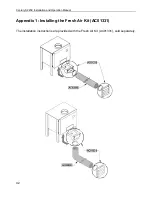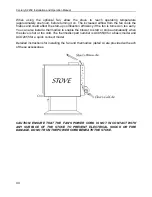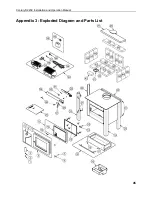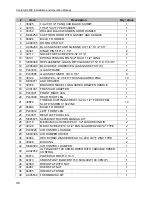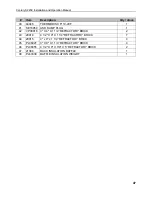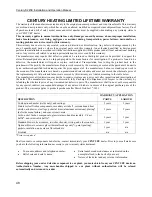
Century S245E Installation and Operation Manual
35
8 The Venting System
8.1
General
The venting system, made up of the chimney and the connecting pipe between the stove
and the chimney, acts as the engine that drives your wood heating system. Even the best
stove will not function safely and efficiently as intended if it is not connected to a suitable
chimney.
The heat in the flue gases that pass from the stove and chimney connector into the
chimney is not waste heat. This heat is what the chimney uses to make the draft that
draws in combustion air, keeps smoke inside the stove and safely vents exhaust to
outside. You can think of heat in the flue gas as the fuel the chimney uses to make draft.
8.2
Suitable Chimneys
Your wood stove will provide optimum efficiency and performance when connected to a 6-
inch diameter chimney flue system. The connection to a chimney having a diameter of at
least 5 inches (Canada only) or no more than 7 inches is permitted, if it allows the proper
venting of combustion gases and that such application is verified and authorized by a
qualified installer. Otherwise, the diameter of the flue should be 6 inches.
To be suitable, a factory-built metal chimney must
comply with UL 103 (U.S.A.) or ULC S629 (Canada).
8.2.1 Factory-built
Metal
Chimneys
These are sometimes referred to as ‘high temp’
chimneys because they have the special
characteristics to withstand the temperatures that
can be created by wood burning stoves. Factory-built
chimneys are tested as a system with all the
necessary components for installation. The
instructions provided with the chimney by its
manufacturer are the only reliable source of
installation guidelines. To be safe and effective, the
chimney must be installed exactly in accordance with
the manufacturer’s instructions.
Use only
components intended for the brand and model of
chimney you are using. Never substitute parts
from other chimney brands or fabricate your own
components. The chimney must be a type
suitable for solid fuel.

